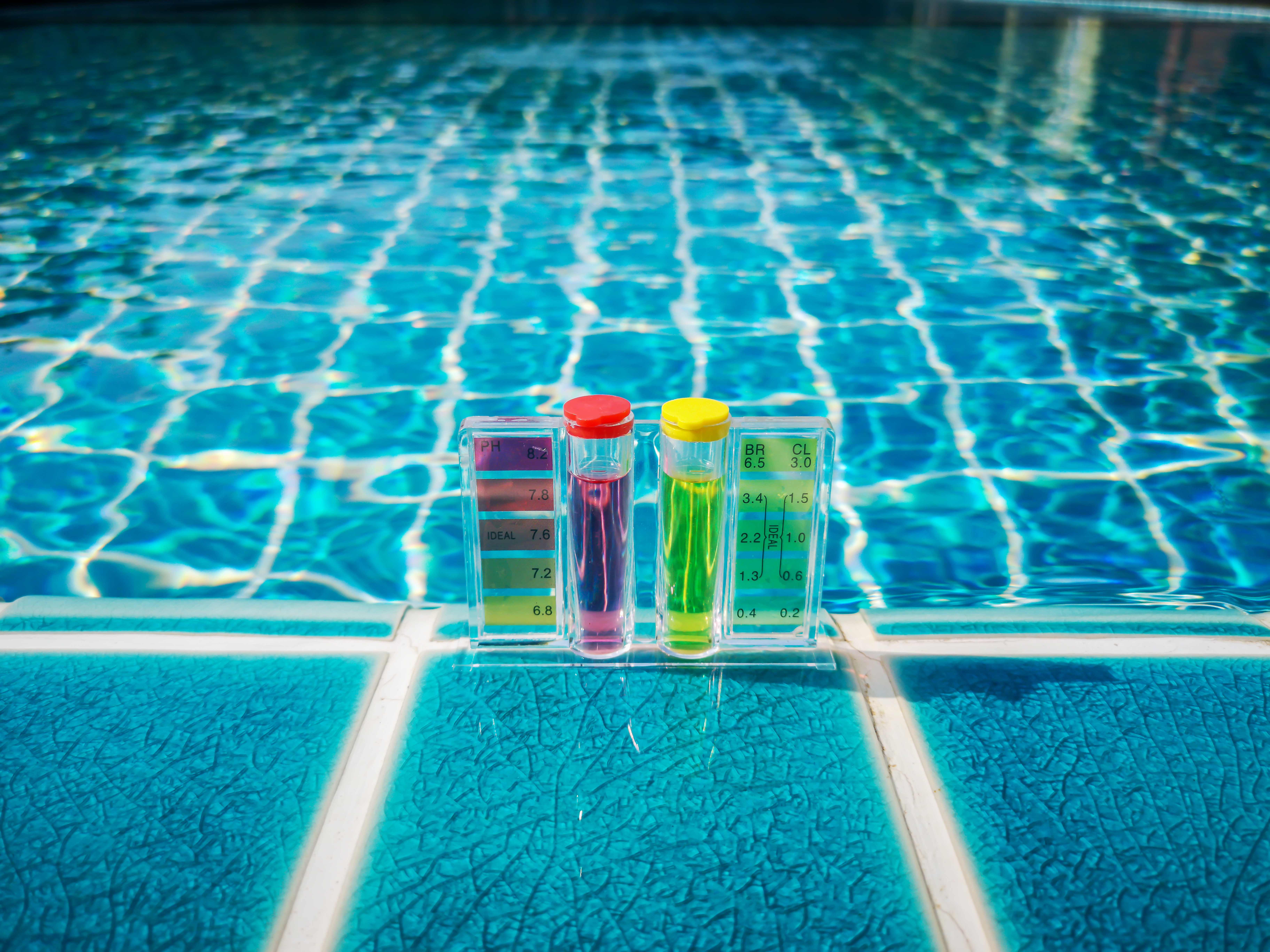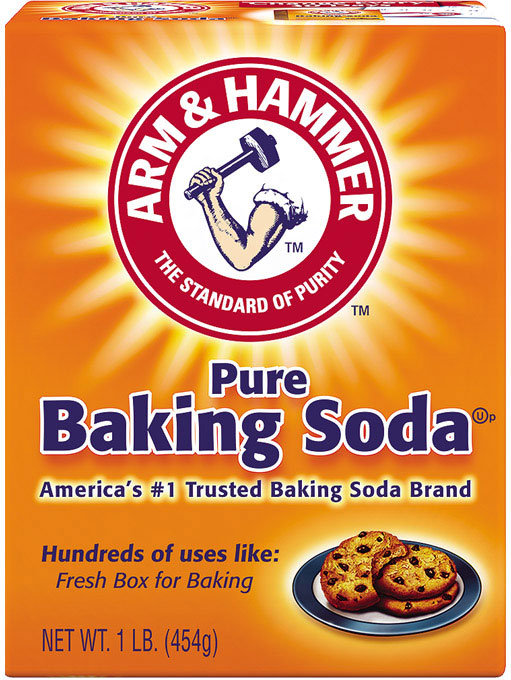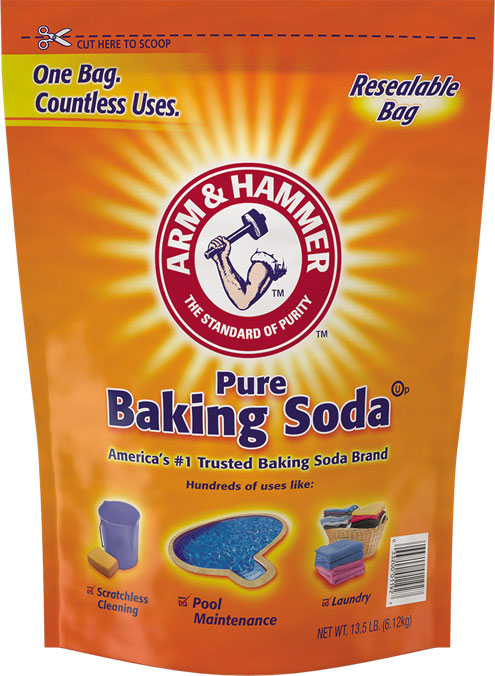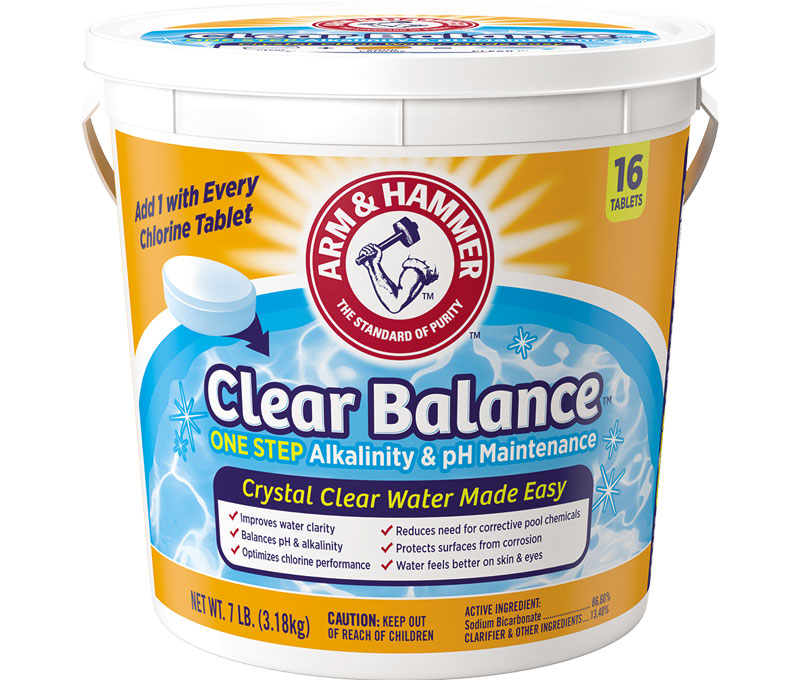What is Pool pH?
Your pool pH is a number between 0 and 14 measured by a pool test strip. A pH of 7 is neutral; a pH level higher than 7 is alkaline and below 7 is acidic. Pure water has a pH of 7, but the starting pH of your pool water varies depending on the minerals and chemicals in your well or municipal water.
Water from your tap or hose typically has a pH level of 6.5-8.5 (average 7.5). Then you add chlorine and other chemicals to kill bacteria and algae and make the pool water safe for swimming. These added chemicals raise or lower your pool’s pH, making it more acidic or alkaline.
Your goal is to keep your pool water balanced in the ideal pH range of slightly higher than neutral. A pool’s pH level is affected by how hard your water is, the weather, water temperature, your pool’s filtration system, how many swimmers have been in the pool, and other factors. It’s clear that pool pH is something you’ll be monitoring carefully and adjusting frequently.
What is the Ideal Pool pH?
The acceptable range for pool water pH is 7.2-7.8, and the ideal pool pH is between 7.4 and 7.6. Water below a pH of 7.2 is too acidic, stinging your eyes, damaging pool liners and corroding equipment. Water above 7.8 is too alkaline and can cause skin irritation, cloudy water, and scale buildup.
How Often Should I Test Pool pH?
Test pool pH every day. Your pool water’s pH changes constantly due to water and chemical evaporation, rain, and things added by your swimmers such as sunscreen and sweat. Use a pH test strip or your pool test kit to check the pH levels daily so you can make adjustments quickly and keep your pH within the ideal range.
Why pH is Important in your Pool
Keeping your pool water pH in this ideal range matters for the health and safety of the people who use your pool and the pool itself.
What happens if my pool pH is too high?
Pool pH that is too high (above 7.8) can cause:
- Cloudy pool water
- Decreased ability for chlorine to kill germs
- Damage to a pool’s vinyl liner
- Dry, itchy skin, rashes and brittle hair
- Mineral scaling inside your pipes, which can reduce circulation and strain your pump
What happens if my pool pH is too low?
When your pool pH level is too low (below 7.2) you can experience:
- Irritated eyes and mucous membranes of swimmers
- Damage or dimpling of your pool’s plaster finish
- Corroded metal parts such as ladders or diving board bases
- Corroded pumps and mechanical systems
- Chlorine instability and overuse
How Do I Adjust Pool Water pH?
The basics of adjusting pool pH are:
- If your pool water pH is above 7.8, add an acid such as muriatic acid or sodium bisulfate
- If the pH level is below 7.2, add an alkaline base such as sodium carbonate (soda ash) or sodium bicarbonate (baking soda)
Your goal is a pH level of 7.3-7.6.
Follow the directions on your pool chemical’s package or use the charts below for how much to add to your pool water depending on pool size and measured pH.
How do I raise the pH in my pool?
Add sodium carbonate (soda ash) or sodium bicarbonate (baking soda) to your inground or above ground pool to increase water pH. soda ash is more alkaline than baking soda and raises pH more drastically. baking soda increases pH more subtly and is less harsh than soda ash, which is used in detergents.
| pH level | Amount of Baking Soda per 10,000 Gallons of Water |
| Less than 7.2 | 3 – 4 lbs. |
| Between 7.4 – 7.5 | 2 lbs. |
| Above 7.5 | Don’t add Baking Soda |
Add baking soda directly to your pool water and allow it to dissolve. You can buy ARM & HAMMER™ Baking Soda in bags of up to 15 lbs to keep enough on hand to balance your pool pH all season.
Baking soda also increases your pool’s alkalinity, which is important for helping your pool water remain stable and comfortable. But, if you need to raise pH without raising total alkalinity, use soda ash instead.
The Importance of Alkalinity to Pool pH
If your pool water’s alkalinity is too low, the pH of your pool water will fluctuate. Your water’s alkalinity should be at least 80 ppm, ideally between 110-150 ppm. You can measure your pool’s total alkalinity with your pool water test kit. Learn more about the importance of alkalinity with our Pool Maintenance Tips, and use ARM & HAMMER™ Clear Balance™ Pool Maintenance Tablets as an easy way to maintain your pool’s alkalinity and pH levels.
Learn More about Using Baking Soda for Pool pH & Maintenance
Check out these resources from ARM & HAMMER™ to help you keep your pool water clean, clear, and balanced all summer long.




